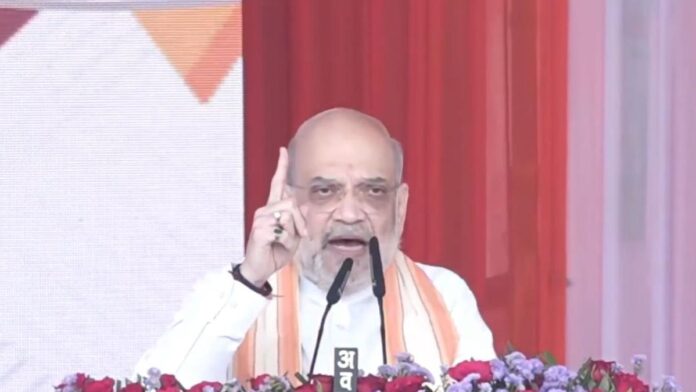Union Home Minister Amit Shah on Saturday took a firm stand against Maoist insurgents, questioning the relevance of dialogue with armed groups and urging them instead to embrace the government’s “lucrative surrender and rehabilitation policy.” His remarks come amid a renewed push by the Centre to eliminate Left-Wing Extremism (LWE) from India’s affected states.
Speaking at a public event, Shah dismissed calls for negotiations with Maoist outfits, stating bluntly: “What is there to talk? The government has already opened the doors to peace. Those who are misled should come back to the mainstream and avail themselves of the best surrender and rehabilitation package in the world.”
The surrender policy, offered by both the Centre and state governments, provides financial incentives, housing benefits, vocational training, and employment opportunities to Maoists who lay down arms. Shah emphasized that hundreds of former cadres had already availed of the scheme and successfully integrated into society.
Highlighting the human and economic cost of the decades-long insurgency, Shah said the government remained committed to bringing development, education, healthcare, and infrastructure to regions once controlled by extremists. “The path of violence has achieved nothing for them. Development and dignity are available to all who choose peace,” he said.
Security officials point out that LWE violence has declined significantly in the past decade due to consistent security operations combined with welfare measures in affected areas. However, pockets of resistance remain in parts of Chhattisgarh, Jharkhand, Odisha, and Maharashtra, where Maoists continue to target security forces and disrupt developmental projects.
Shah’s statement signals the government’s resolve to maintain pressure on extremist groups while keeping the offer of rehabilitation open. Analysts note that by branding the surrender policy as “lucrative,” the Home Minister is seeking to underline the tangible benefits of choosing peace over violence.
Opposition parties and human rights groups, however, have cautioned that a purely security-driven approach risks overlooking deeper socio-economic grievances that fuel discontent. They argue that meaningful rehabilitation must go hand in hand with addressing issues such as displacement, land rights, and access to resources for tribal communities.
Still, Shah’s message was clear: the government will not indulge in endless dialogue with armed groups but will welcome them if they surrender. “Violence has no place in a democracy,” he concluded. “The choice is simple—join the mainstream, benefit from our rehabilitation policy, and live with dignity.”



